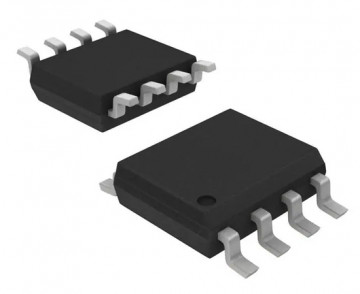|
Supply voltage range:
|
2,7~3,65V |
|
Case:
|
SOP08 |
|
RAM memory:
|
8kB |
|
Frequency:
|
20,000MHz |
|
Manufacturer:
|
Ramtron |
|
Architecture:
|
8-bit |
|
Operating temperature (range):
|
-40°C ~ 85°C |
|
SPI interface:
|
YES |
|
TWI (I2C) interface:
|
NO |
|
ADC:
|
NO |
|
CAN interface:
|
NO |
|
DAC:
|
NO |
|
ETHERNET interface:
|
NO |
|
Encryption:
|
NO |
|
UART/USART interface:
|
NO |
|
USB interface:
|
NO |
Detailed description
Selected features:
- capacity: 64 Kbit;
- organization: 8-bit;
- serial access: 2-Wire/SPI interface;
- interface clock frequency: 1/20 MHz;
- data retention period: min. 10 years;
- no waiting for write/read operations (NoDelay™ Writes);
- current consumption:
a) in active state: max. 200 µA;
b) in standby mode: max. 10 µA;
- compatibility with EEPROM memory;
- supply voltage: 2.7 ÷ 3.65 V;
- operating temperature: -40 ÷ 85°C;
- available in SOP08 package.
FRAM memory is made from a ferroelectric material called PZT (a compound of lead, zirconium, and titanium), which has the ability to remember one of two directions of an electric field. Information is stored using the ferroelectric effect – when an electric field is applied, it causes a permanent change in the polarization of particles. The absence of an electric field does not cause a change in polarization. A memory cell can be imagined as a capacitor with ferroelectric material as the dielectric, alternately charged with voltage of opposite polarity. By changing the polarization of charges in such a capacitor, two stable states corresponding to the logical states "0" and "1" can be stored.
FRAM memories are called non-volatile RAM memories. They combine the advantages of random-access RAM and read-only ROM memory. They are characterized by the ability for fast read and write operations, virtually unlimited write/erase cycles, and data non-volatility – disconnecting the power supply does not cause the loss of stored information. Data refreshing is not necessary. FRAM memories are used where high speed, low power consumption, and data security are required.

